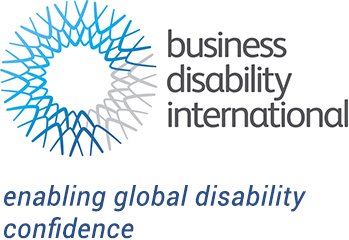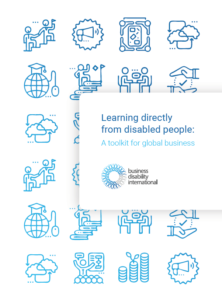
Strategic Alliances
bdi is proud to work in partnership with a growing number of organisations who support and further our work around the world.
The Australia Network on Disability (AND)
Their highly skilled disability consultants come from a wide variety of professional backgrounds, meaning they will always provide a consultant with the most relevant skills and experience for an organisation’s specific situation.
AND is not an employment agency, and do not find jobs for people with disability. Rather, they work with their member organisations so that the members become more confident and prepared to welcome people with disability into their organisations.
National Business & Disability Council (NBDC)
NBDC at The Viscardi Center is an employer organisation and comprehensive resource for disability best practices. Its corporate partners are predominantly Fortune 1000 companies and government employers committed to disability diversity.
By becoming a NBDC Corporate Partner, companies can proactively strengthen and diversify their workforce as well as comply with the requirements of the American with Disabilities Act (ADA) and other federal regulations. NBDC can also assist companies in marketing to the 56.7 million Americans with disabilities, as well as gain greater insight into the economic contributions that accessible information and communication technology provides to companies.
myAbility Social Business in Austria, Germany and Switzerland
myAbility is a social business specialized in disability consulting and employment strategies in Austria, Germany and Switzerland. In 2009, the founders of myAbility launched the inclusive online job-board www.myAbility.jobs and soon after developed the first strategic approach for realizing economic benefits working with disability across all business units. The company supports 60 big companies per year and has published over 25.000 jobs on the job platform since its launch.
Furthermore, myAbilty hosts the biggest business network of companies to encourage the dialogue on inclusion and “disability confidence” on a national level. myAbility has gained several international awards and is part of the Ashoka network.
The Global Initiative for Inclusive Information and Communication Technologies (G3ict)
Participating international institutions in G3ict programs include the International Telecommunication Union (ITU), the United Nations Department for Economic and Social Affairs (UN DESA), the United Nations Educational, Scientific and Cultural Organization (UNESCO), the United Nations Institute for Training and Research (UNITAR), the International Labour Organisation (ILO), the World Intellectual Property Organization (WIPO), and the World Bank.
To achieve its mission, G3ict works with its constituents to raise awareness, facilitate the sharing of solutions and good practices through a web-based platform, foster harmonisation and standardisation and to support policy makers.
Community Business
• Investing and supporting local communities
• Tackling inequality in the workplace
• Ensuring happy, healthy and engaged employees
• Promoting social inclusion
• Building responsible business leadership
Founded in 2003 and based in Hong Kong with a presence in India and the United Kingdom, Community Business works with companies of all sizes and from diverse industries across Asia, harnessing the power of business to drive social change.
Essl Foundation
They take a solutions-based approach to their work. Together with their continuously growing network of over 3,000 disability experts in over 150 countries, they seek to identify the most innovative and effective Policies & Practices that improve the lives of persons with disabilities. And they tell the world about those Policies & Practices. Each year they focus their research on a particular theme from the UN Convention on the Rights of People with Disabilities (UN CRPD). They publish a report based on this theme and organise a conference around its results. Held at the UN in Vienna this event typically brings together over 400 delegates from more than 50 countries.
The annual Zero Project Report presents the Policies & Practices that have been selected as the most innovative in their approach to that year’s theme. It also evaluates just how the UN CRPD is being implemented around the world. For this, they created Social Indicators. So far, the Zero Project researched on employment in 2012/13, on accessibility in 2013/14, on independent living and political participation in 2014/15 and on inclusive education and ICT in 2015/16. The Zero Project is run in partnership with the World Future Council since 2011 and with the European Foundation Centre.
They consider employment in the open labour market, on an equal basis with others, to be one of the key factors to reach their goal of “zero barriers”. This is one of the reasons why the Essl Foundation also supports innovative projects directly that create work for persons with disabilities in Austria, besides the Zero Project.
And, finally, like bdi, they strongly believe that only joint efforts of different stakeholder can create the change that we are all aiming to achieve. Catalysts that initiate cooperations and collaborations, associations and joint ventures, minimum standards and shared visions, are highly needed and create value for all.
Specialisterne Foundation
Specialisterne is an award-winning international social business harnessing untapped skills of autistic individuals by matching them with businesses who gain a competitive advantage from an innovative mind-set, strong motivation and skills such as attention to detail, strong memory and logistical rigour.
As a recruitment business, Specialisterne matches autistic talent for long-term job opportunities by offering an assessment module to organisations supporting autistic people and providing consulting and HR services to businesses.
Specialisterne Foundation is the global not-for-profit organisation that coordinates efforts across Specialisterne entities, to serve clients and partners in more than 15 countries.
The vision is a world where people are given equal opportunities in the labour market. The goal is to enable 1 million jobs for autistic people globally.
Specialisterne Foundation is associated with the UN Department of Public Information.
PurpleSpace
PurpleSpace developed out of Kate Nash Associates work in supporting or establishing many of these employee networks for over 300 organisations including: Fujitsu, Barclays, EY, Metropolitan Police Service, Home Office, Thomson Reuters and RBS.
In creating PurpleSpace, Kate Nash OBE has created a vehicle for driving the third stage of change for disability in business. PurpleSpace members instigate fresh conversations and share their powerful stories of the lived experience of disability so that organisations just “get it” and want to invest in their talent, their career, their progression.
bdi and PurpleSpace can help global business to understand the benefits of learning directly from disabled people, facilitate the opportunities to make this happen and implement frameworks to ensure ongoing and meaningful conversations.
Myanmar Centre for Responsible Business (MCRB)
Based in Yangon, it aims to provide a trusted, impartial forum for dialogue, seminars, and briefings to relevant parties as well as access to international expertise and tools. The United Nations Guiding Principles on Business and Human Rights, which were unanimously endorsed in June 2011 by the UN Human Rights Council, are key to the Centre’s mission and activities, including its work on disability rights and business.
Click here to visit the Myanmar Centre for Responsible Business’ website










